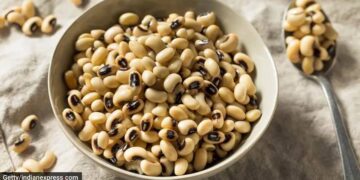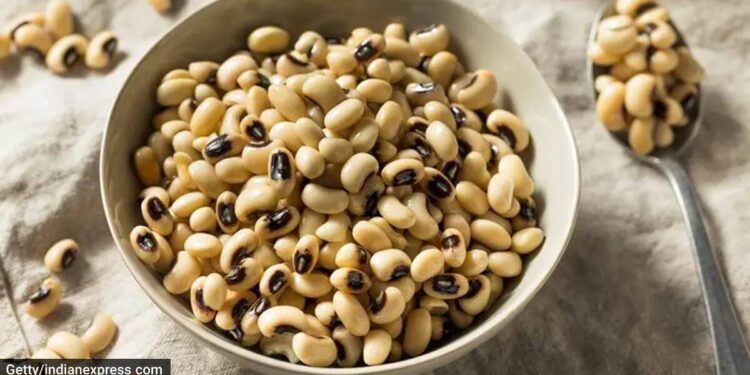By Ebi Kesiena
Beans provide myriad health benefits, and they fit into several different food groups: Although they are rich in complex carbs like breads and starches, as a plant-based food, they feel right at home in the vegetable group, offering an array of vitamins, minerals and antioxidants, like their veggie companions. They can also hold their own in the protein group, supplying protein aplenty. Unlike some other members of this group, beans provide little to no fat and are cholesterol-free. In fact, beans actually lower cholesterol and triglyceride levels instead of potentially causing them to increase, as some animal proteins have been shown to do.
Low In Fat
Most beans are about 2 to 3 percent fat, and contain no cholesterol, unless they’re processed or prepared with other ingredients.
They Pack Protein
The Dietary Guidelines say we should be eating more plant proteins. About 1/2 cup of beans provides 7 grams of protein, the same amount as in 1 ounce of chicken, meat or fish. Vegetarians, vegans and individuals who seldom eat meat, poultry, or fish could count on beans as an alternative choice.
Balance Blood Sugar
With a low glycemic index, beans contain a beautiful blend of complex carbohydrates and protein. Because of this, beans are digested slowly, which helps keep blood glucose stable, and may curtail fatigue and irritability.
They Cut Cancer Risk
Scientists recommend that adults consume 3 cups of beans per week to promote health and reduce the risk of chronic diseases, like cancer. That owes to their abundance of fiber and antioxidants.
Beans Will Move You
Filled with fiber, beans can promote regularity by preventing constipation. To maximize your meal, be sure to accompany high-fiber foods with ample fluids, like still or sparkling water. Weighing in at 5 to 8 grams of fiber per 100 grams (3 ounces), beans are ideal for those who are sensitive to gluten, a natural protein found in products containing wheat, rye, barley, and sometimes oats. If you do have food allergies, however, check the food label or contact the manufacturer to be sure the product is safe.
Beans will Satisfy You
Because beans are metabolized more slowly than other complex carbs, they may aid in weight loss by keeping us feeling full without being excessively high in calories. Beans are the least expensive source of protein, especially when compared to fresh meat.
They Are Nutrient-Rich
Aside from protein, complex carbs and fiber, beans contain a powerhouse of nutrients including antioxidants, and vitamins and minerals, such as copper, folate, iron, magnesium, manganese, phosphorus, potassium and zinc. The Dietary Guidelines refer to many of these important nutrients as “shortfall nutrients,” meaning most of us aren’t getting enough of them. Beans can help you step up to a more complete plate.
They’re Versatile
They can be incorporated into a main dish (chili), side dish (rice and beans), appetizer (soup) or snack (dip). It’s easy to be creative when you have kidney beans, pinto beans, black beans, lima beans, black-eyed peas, garbanzo beans (chickpeas), split peas and lentils in your pantry.
Beans is good for your heart
A diet rich in beans is good news for your heart. “With every 1% reduction of total blood cholesterol, there is about a 2% reduction in the risk of heart attack. Then there’s their high fiber content. A study in the British Medical Journal looked at the relationship between fiber intake and heart disease as well as cardiovascular disease. Researchers found that getting in an additional 7 grams of fiber per day could significantly lower your risk of developing either condition by 9%. Beans are also good sources of potassium and magnesium, key minerals for your heart. Potassium naturally removes excess sodium and water from your system, which can reduce blood pressure.
Beans are “heart healthy” because they contain an abundance of soluble fiber, which can lower cholesterol and triglyceride levels. If you prefer canned beans, you can ditch up to 40 percent of the sodium by rinsing them in water.
Beans are a good source of B vitamins
In many bean varieties, you’ll find B6, and folate B, vitamins that help you convert food to energy, boost good cholesterol, and reduce inflammation, among other things. Research has shown that folate and B6 may be helpful for lowering your risk of cardiovascular disease, too. A Japanese study in Stroke found that higher consumption of folate and B6 was associated with fewer deaths from heart failure in men, plus fewer deaths from stroke, heart disease, and total cardiovascular events in women. While you can also get your intake of B vitamins from fish, whole grains, and veggies, adding beans to your diet is a great way to keep your body going strong.




































